Social Justice Resources
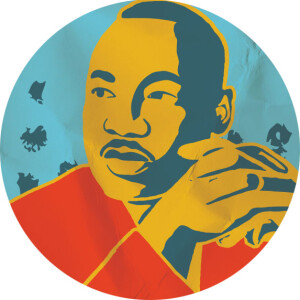
Social Justice Resources
“Not a day off, but a day on…”
Wartburg College treats MLK Day differently than most college campuses around the U.S. Rather than providing a day off, classes are shortened in the morning and afternoon educational and service programming is available for faculty, staff, and students to participate. This tradition was started in 1998 when a group of concerned Wartburg students presented a proposal to the college president and cabinet members. Here is an excerpt from the proposal:
Wartburg College is a respected institution. The problems within our community are minor compared to the level of misunderstandings and lack of responsibility within the entirety of society. By focusing on issues similar to those for which King fought, the students will contemplate their importance to their lives and application to their fields of study. Students will also witness the impact one person can have within a society. The day will frustrate, inspire, and educate, but most importantly, it will compel students to investigate an issue they cannot afford to ignore.
Original MLK Day student proposal from 1998
Let’s continue the tradition and make Wartburg College a better place for everyone!
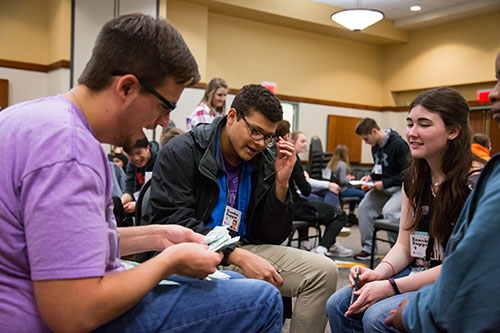
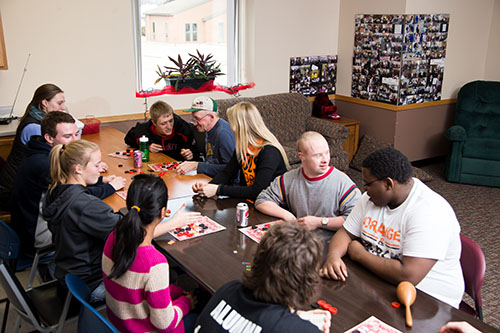
Black Theology
Black Theology emerged out of generations of struggle for black liberation from white supremacy in the United States. A pivotal moment was in July 1966 when 51 black pastors took out a full page ad in the New York Times proclaiming Christian support for Black Power.
James Cone quickly emerged as “the father of black liberation theology,” seeking, as he described it, an integration of Martin Luther King Jr.’s emphasis on Christian love and Malcolm X’s demands for justice in a white supremacist culture.
Womanism
Womanist Theology is a movement emerging out of the poetic term coined by Alice Walker in 1982:
Delores S. Williams innovated the application of womanism to biblical interpretation and Christian theology and ethics. Her analysis of “the Abraham cycle” (Genesis 12-25) focused on Hagar and her experiences as a black woman who was both enslaved to a white woman and subjugated to a man. This connects to black women’s tri-dimensional experiences of racism in white feminism, sexism in black theology, and class-oppression based on their intersectional experiences of oppression.
Black Lives Matter
Black Lives Matter is not only a movement seeking radical political reform, but a spiritual movement seeking to heal and empower while inspiring other religious allies seeking inclusivity.”
Far From Being Anti-Religious, Faith and Spirituality Run Deep in Black Lives Matter
Images of Black Madonna and Black Christ
Images of the Black Christ and the Black Madonna are revered around the world. They point to the historical fact that Jesus was not white and looked nothing like images of him in most Eurocentric churches. They also suggest a theology of Mary who identifies with marginalized women around the globe. Their embrace, as well as the resistance to them, suggest that it matters very much how the divine is imaged in Christian communities.
Our Black Mother Podcast with Christena Cleveland
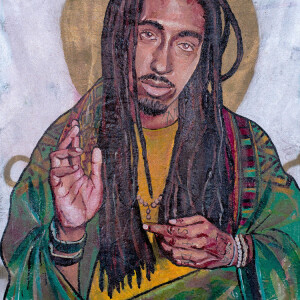
Mission
Embrace promotes education of historically marginalized communities, promoting truth, discomfort and celebration
Pledge: Embrace Thy Neighbor
I pledge to embrace and respect the diversity of all individuals
I pledge to nurture a deeper awareness and understanding of the diversity around me
I pledge to engage with and contribute to the diversity in my community
I pledge to honor this declaration in my daily life
Projects
Embrace the Race
Reading Challenge
Little Free Library
Book Clubs
Educational Workshops
Community partnerships: CUNA, Healthy Cedar Valley, WSR Schools
Pre-School Book Giveaway
Diversity Festival
21-Day Challenge
EMBRACE Team Members:
La Toshia Burrell
Jean Schenkewitz
Libby Fry
Josie Beckstrom
Jennifer Onuigbo
Janet Irankunda
Jacqueline Jeffcoat Schedtler
Stephanie Miller
Marquis Stephens
Allison Banwart-Hales
Jenn Wolff
To learn more about EMBRACE, email Jennifer.Onuigbo@wartburg.edu.
https://health.cornell.edu/sites/health/files/pdf-library/ally-up.pdf
https://www.vogue.co.uk/arts-and-lifestyle/article/non-optical-ally-guide
https://www.dismantlecollective.org/resources/
https://www.tolerance.org/magazine/spring-2018/how-to-be-an-ally
https://robindiangelo.com/wp-content/uploads/2016/01/Antiracist-Checklist-2015.pdf
https://www.cnn.com/2020/05/30/us/how-to-be-an-ally-guide-trnd/index.html
John Lewis grew up in an era of racial segregation. Inspired by Martin Luther King Jr., he joined the burgeoning civil rights movement. Lewis was a Freedom Rider, spoke at 1963’s March on Washington and led the demonstration that became known as “Bloody Sunday.” He was elected to Congress in 1986 and received the Presidential Medal of Freedom in 2011.
– Biography.com
The journey toward social justice can be lonely and dangerous. Equity will not just happen. We must be willing to get into the arena, and there will always be critique and dismissal. The Civil Rights movement is not just a historic movement. It continues today in the work of today’s Black activists and leaders who continue to put their reputations, bodies, and lives on the line for freedom. Join them by heeding John Lewis’ words, “Ordinary people with extraordinary vision can redeem the soul of America by getting in what I call good trouble, necessary trouble.”
Check out the 2nd Floor display at Vogel Library to learn a bit more about folks who have caused good trouble through the years. You can also view complementary digital resources at https://knightguides.wartburg.edu/digitaldisplay.
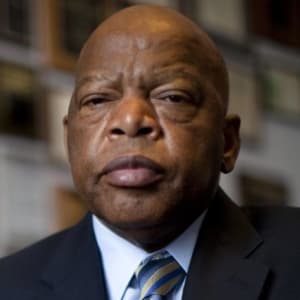
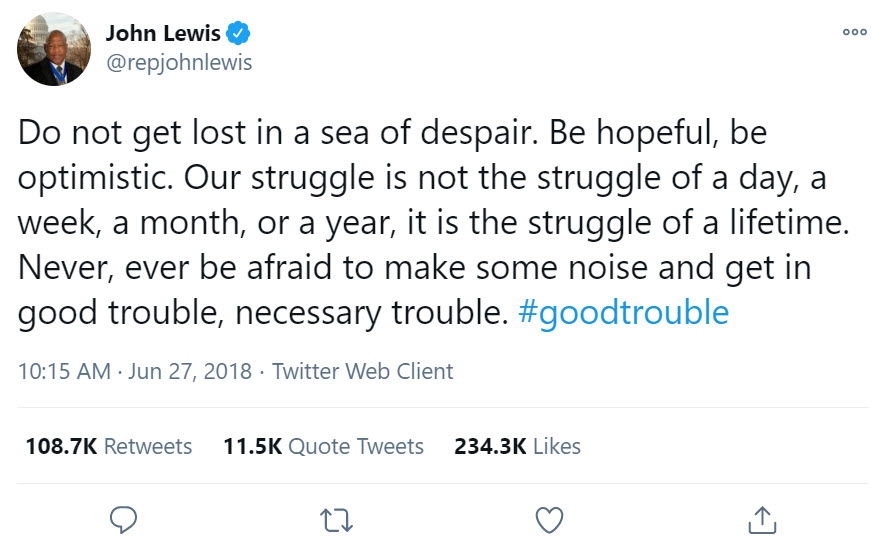
What is it? “A Land Acknowledgement is a formal statement that recognizes and respects Indigenous Peoples as traditional stewards of this land and the enduring relationship that exists between Indigenous Peoples and their traditional territories” (American College Personnel Association, 2019).
Why do it? Every geographic area in the U.S. holds a history of displacement, massacre, or other trauma inflicted on the Indigenous people who originally inhabited the land. Every area also holds the history of the Indigenous people who were careful stewards of the land and the living things upon it before being displaced. Educational institutions must recognize their part in the erasure of Indigenous people and culture from the classroom and the erasure from each institution’s narrative of its own history. A land acknowledgement explicitly incorporates Indigenous people back into the college’s story and should indicate a commitment to the same decolonization in the classroom.
Who does it? Land acknowledgements are common practice in Canada and Australia, especially for colleges and universities, but these same institution types in the U.S. have been slow to follow, although more are doing so in the last couple years.
How to do it? Take the time to research the history of the Indigenous people in your geographic area. Once ready, post the statement online and recite the acknowledgement out loud at the beginning of public events.
Land acknowledgment information hub: http://landacknowledgements.org/.
US Dept of Arts and Culture land acknowledgement site: https://usdac.us/nativeland
Insight into Diversity article: https://www.insightintodiversity.com/acknowledging-native-land-is-a-step-against-indigenous-erasure/
“Decolonization is not a metaphor,” article by Tuck and Yang: https://jps.library.utoronto.ca/index.php/des/article/view/18630
Example acknowledgements from three other small private colleges:
Did you know Wartburg College Spiritual Life & Campus Ministry is a Reconciling in Christ Community? This means we:
SLCM Statement of Welcome
Because gay, lesbian, bisexual and transgender persons and their families are often scorned by society and alienated from the Church, we wish to make known our caring nature and concern. It is for this purpose that we affirm the following: As a college of the Evangelical Lutheran Church in America and in keeping with Wartburg College’s values of diversity and inclusion, the college openly welcomes and affirms people of all sexual orientations and gender identities and understands them to be an important part of the campus community.
Support Black-owned Businesses in the State of Iowa!
Did you know Waterloo, just 20 miles south of Waverly, is known as the “Black Capitol of Iowa?” When you shop local businesses, your purchasing power strengthens the economy. Get the Black Capitol on your phone and check out what Black-owned businesses you can support – AND win prizes for each place you check-in.
Black Capitol of Iowa Website
Waterloo Black-owned Business Directory
Other Black-owned Businesses in Iowa Directories
Watch the video interviews of a few amazing leaders in the Waterloo community below. See places to visit and what it’s like to lead the Black Capitol of Iowa.
Black Lives Matter
According to the BLM website, in 2013 three radical Black organizers — Alicia Garza, Patrisse Cullors, and Opal Tometi — created a Black-centered political will and movement building project called #BlackLivesMatter. It was in response to the acquittal of Trayvon Martin’s murderer, George Zimmerman.
Donate:
Educate and Help:
– VOTE!
Other Resources:
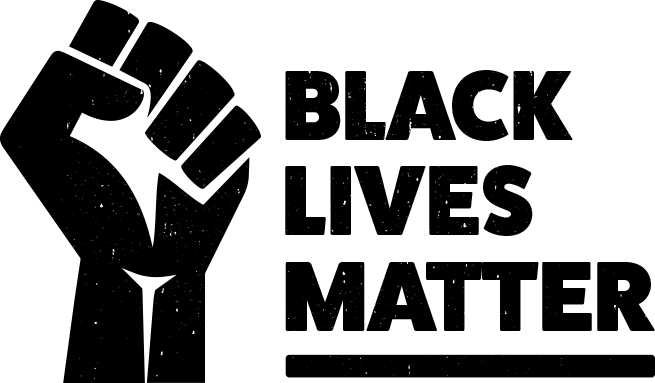
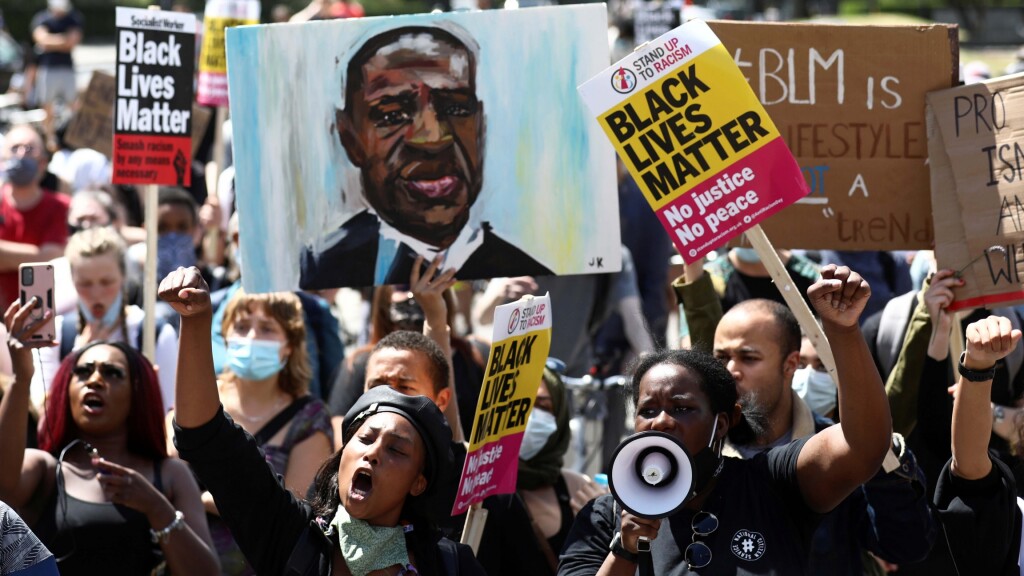
Ways to learn on your own time:
Read: